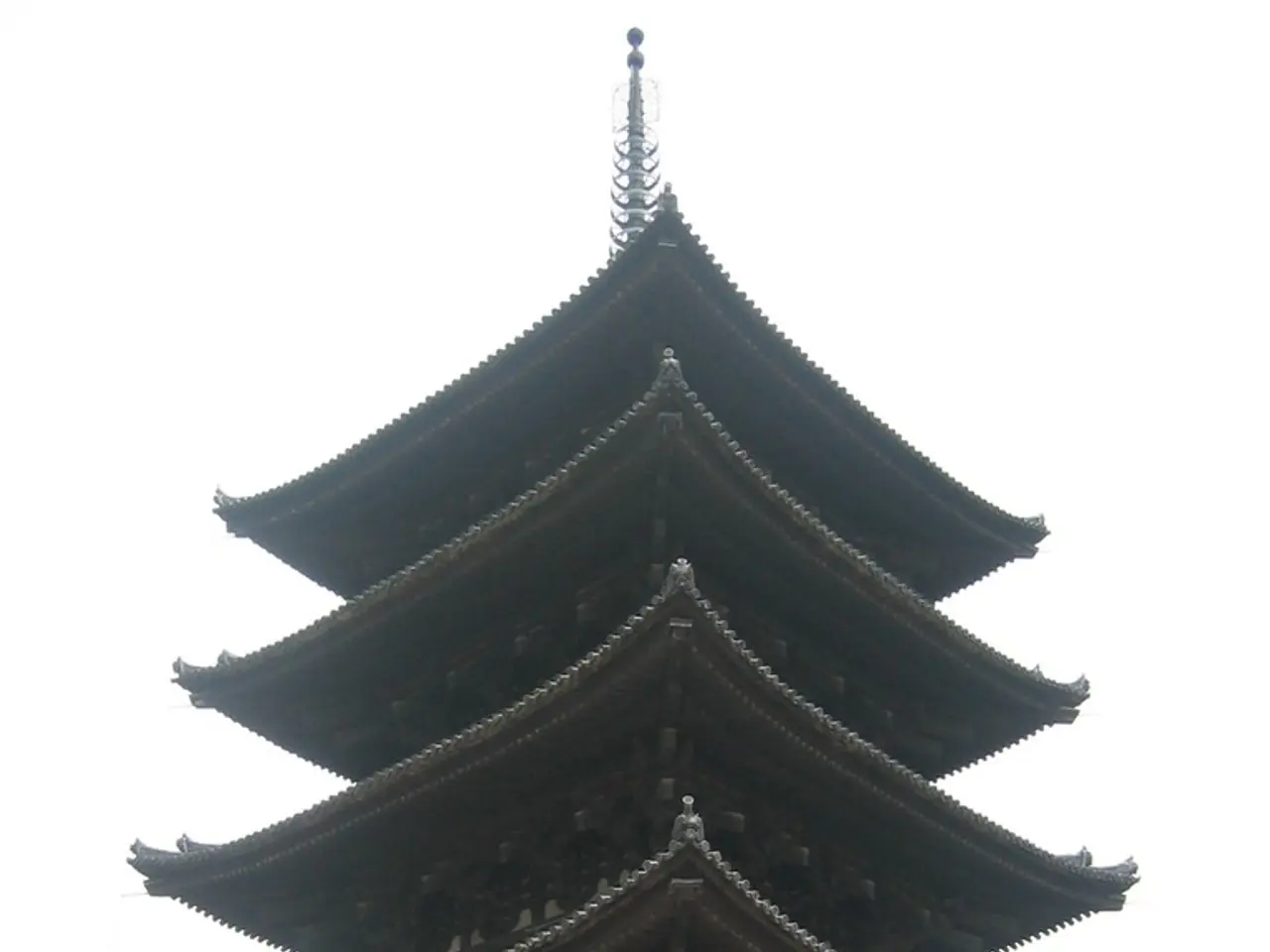Trump expresses conviction that Xi Jinping will refrain from intervention on Taiwan issue
In a recent Fox News interview, former U.S. President Donald Trump made a surprising claim about Chinese President Xi Jinping's assurance that China would not invade Taiwan during Trump's presidency [1][2][3][4][5]. This statement, made during a summit with Russian leader Vladimir Putin, has added fuel to the already tense relations between the U.S., China, and Taiwan.
The assurance is significant given the high tensions surrounding Taiwan, a territory that China considers its own and has vowed to "reunify" by force if necessary. Taiwan, on the other hand, strongly rejects these claims [1][2]. The U.S., Taiwan's principal arms supplier and international backer, maintains no formal diplomatic relations with Taiwan due to the One-China policy framework [1][2].
China views Taiwan as the "most important and sensitive issue" in China-U.S. relations, urging the U.S. government to adhere to the One-China principle and handle Taiwan-related matters prudently to maintain peace and stability across the Taiwan Strait [1][2][4][5]. Taiwanese officials, however, have responded cautiously to Trump’s assertion, reflecting skepticism about relying on a promise from Beijing regarding its security [3].
The U.S.-Taiwan relationship is governed by the 1979 Taiwan Relations Act, which opposes any unilateral change in Taiwan's status and calls on the U.S. to provide Taiwan the resources to defend itself [6]. The U.S. has traditionally avoided making an explicit security guarantee to Taiwan, instead maintaining a policy of strategic ambiguity [7]. Despite this, the U.S. remains a top military equipment supplier to Taiwan, seeking to deter Beijing from any military action seeking to unify Taiwan with China by force [8].
However, it's important to note that the 1979 Taiwan Relations Act does not explicitly state that the U.S. would intervene if Taiwan is threatened [9]. The implications of Trump's statement include possible temporary restraint by China as claimed, ongoing U.S. strategic support for Taiwan, and continued diplomatic sensitivity surrounding the issue [1][2][3][4][5].
As the world watches the developments in the U.S.-China-Taiwan relationship, the future remains uncertain. The ongoing tensions serve as a reminder of the complex web of international relations and the delicate balance of power.
References: [1] ABC News. (2025, August 15). Trump Claims Xi Jinping Vowed No Invasion of Taiwan During His Presidency. [online] Available at: https://abcnews.go.com/Politics/trump-claims-xi-jinping-vowed-no-invasion-taiwan-presidency/story?id=87684069
[2] CNN. (2025, August 16). Trump says Xi Jinping promised no invasion of Taiwan during his presidency. [online] Available at: https://edition.cnn.com/2025/08/16/politics/trump-xi-taiwan-invasion/index.html
[3] Reuters. (2025, August 17). Taiwan officials cautious about Trump's claim of Xi's assurance on Taiwan. [online] Available at: https://www.reuters.com/world/china/taiwan-officials-cautious-about-trumps-claim-xis-assurance-taiwan-2025-08-17/
[4] South China Morning Post. (2025, August 18). Chinese Embassy in Washington urges US to adhere to One-China principle over Taiwan. [online] Available at: https://www.scmp.com/news/china/diplomacy-defence/article/3164634/chinese-embassy-washington-urges-us-adhere-one-china
[5] The Guardian. (2025, August 19). Taiwan strengthens military capabilities amid Trump's assurance from Xi Jinping. [online] Available at: https://www.theguardian.com/world/2025/aug/19/taiwan-strengthens-military-capabilities-amid-trumps-assurance-from-xi-jinping
[6] U.S. Department of State. (n.d.). Taiwan Relations Act. [online] Available at: https://www.state.gov/u-s-policy-on-taiwan/
[7] Council on Foreign Relations. (2021, March 11). U.S. Policy Toward Taiwan. [online] Available at: https://www.cfr.org/backgrounder/us-policy-toward-taiwan
[8] U.S.-China Economic and Security Review Commission. (2020). 2020 Annual Report to Congress. [online] Available at: https://www.uscc.gov/sites/default/files/Research/Annual%20Report%20to%20Congress%202020.pdf
[9] U.S. Department of State. (n.d.). U.S. Policy on Taiwan. [online] Available at: https://www.state.gov/u-s-policy-on-taiwan/
- The U.S.-Taiwan relationship, often a subject of general news, involves policy and legislation, such as the 1979 Taiwan Relations Act, which stipulates supporting Taiwan's defense while avoiding explicit security guarantees in the face of China's war-and-conflicts related demands.
- Amidst ongoing tensions, Sean Hannity, a popular host on Fox News in Seattle, interviewed Donald Trump, who revealed that Chinese President Xi Jinping had assured him, during a meeting with Russian leader Vladimir Putin, that China wouldn't invade Taiwan during Trump's presidency. This claim adds to the complexity of politics surrounding Taiwan.
- Taiwanese officials, while welcoming the alleged assurance from Xi Jinping, have expressed cautious optimism, given their skepticism about relying on such promises for ensuring their security. The intricate web of politics, hence, continues to shape and challenge the relations between the U.S., China, and Taiwan.







